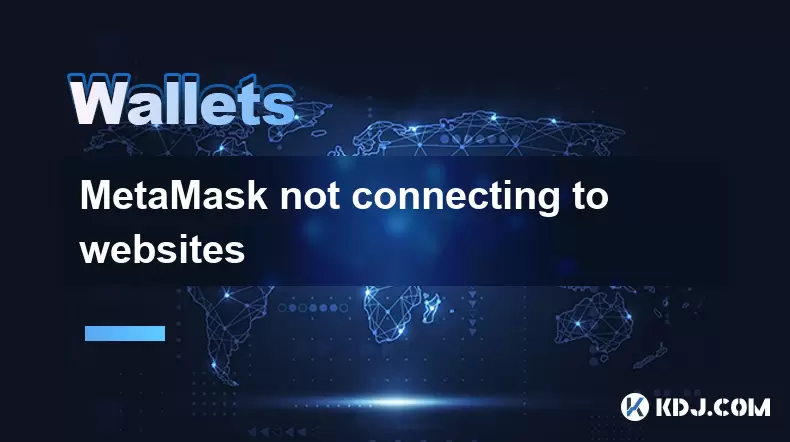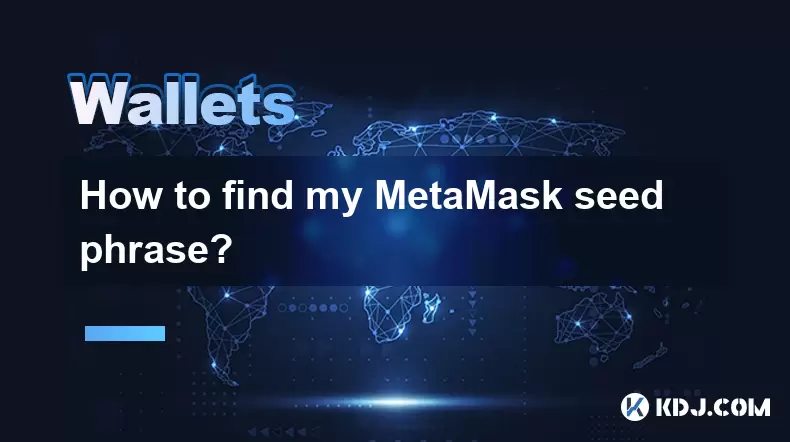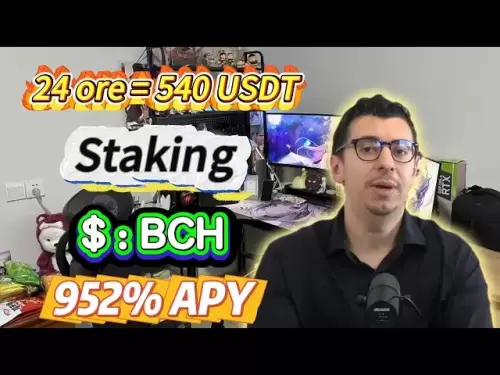-
 Bitcoin
Bitcoin $107,810.8710
-1.45% -
 Ethereum
Ethereum $2,531.4386
-1.75% -
 Tether USDt
Tether USDt $1.0000
-0.03% -
 XRP
XRP $2.2542
-0.99% -
 BNB
BNB $659.1350
-0.50% -
 Solana
Solana $148.5456
-2.40% -
 USDC
USDC $0.9999
-0.02% -
 TRON
TRON $0.2868
-0.44% -
 Dogecoin
Dogecoin $0.1666
-3.65% -
 Cardano
Cardano $0.5751
-2.36% -
 Hyperliquid
Hyperliquid $37.6845
-5.51% -
 Bitcoin Cash
Bitcoin Cash $494.9448
-0.65% -
 Sui
Sui $2.8396
-3.31% -
 Chainlink
Chainlink $13.2423
-2.59% -
 UNUS SED LEO
UNUS SED LEO $9.0482
0.02% -
 Stellar
Stellar $0.2467
-2.44% -
 Avalanche
Avalanche $17.8165
-3.63% -
 Shiba Inu
Shiba Inu $0.0...01158
-2.41% -
 Toncoin
Toncoin $2.7397
-3.42% -
 Hedera
Hedera $0.1560
-2.73% -
 Litecoin
Litecoin $85.8559
-2.34% -
 Monero
Monero $315.3710
-2.30% -
 Dai
Dai $1.0001
0.00% -
 Polkadot
Polkadot $3.3443
-2.03% -
 Ethena USDe
Ethena USDe $1.0001
0.01% -
 Bitget Token
Bitget Token $4.2888
-3.73% -
 Uniswap
Uniswap $7.3388
-1.57% -
 Aave
Aave $278.2986
-3.05% -
 Pepe
Pepe $0.0...09807
-3.67% -
 Pi
Pi $0.4563
-2.39%
What if Trust Wallet gas fee is too high?
To manage high gas fees on Trust Wallet, adjust gas settings, time transactions during low congestion, and explore alternative networks like BSC or Polygon.
Apr 18, 2025 at 11:14 am

When using Trust Wallet, one of the common concerns users face is the high gas fees associated with transactions. Gas fees are payments made to miners for processing transactions on the blockchain, and they can fluctuate based on network congestion and the complexity of the transaction. If you find that the gas fees on Trust Wallet are too high, there are several strategies you can employ to manage or reduce these costs. This article will explore various methods to handle high gas fees, including adjusting gas settings, timing your transactions, and exploring alternative networks.
Understanding Gas Fees in Trust Wallet
Gas fees are essential for the operation of blockchain networks like Ethereum, where Trust Wallet primarily operates. These fees are calculated based on two main factors: gas price and gas limit. The gas price is the amount you're willing to pay per unit of gas, usually measured in Gwei, while the gas limit is the maximum amount of gas you're willing to use for your transaction. When the network is congested, gas prices tend to rise as users compete to have their transactions processed more quickly.
To view the current gas fee for a transaction in Trust Wallet, follow these steps:
- Open the Trust Wallet app and navigate to the asset you want to send.
- Tap on "Send" and enter the recipient's address and the amount you want to send.
- Before confirming the transaction, you will see an estimated gas fee. This fee can be adjusted by tapping on the "Gas" or "Advanced" settings, depending on your version of the app.
Adjusting Gas Settings to Lower Fees
One way to potentially reduce gas fees is by manually adjusting the gas settings. Trust Wallet allows users to customize the gas price and gas limit for their transactions. Here's how you can do it:
- After entering the transaction details, tap on the "Gas" or "Advanced" settings.
- You will see options to adjust the gas price and gas limit. Lowering the gas price can reduce your fee, but it may also increase the time it takes for your transaction to be processed.
- Adjust the gas limit if you believe the default setting is too high for your transaction. However, be cautious not to set it too low, as this could result in the transaction failing.
Remember, finding the right balance between gas price and gas limit is key to minimizing fees while ensuring your transaction is processed in a reasonable timeframe.
Timing Your Transactions
Another strategy to manage high gas fees is to time your transactions during periods of lower network congestion. The Ethereum network, for example, tends to be busier during peak hours, which can drive up gas prices. Here are some tips for timing your transactions:
- Monitor network activity using tools like Etherscan or EthGasStation. These platforms provide real-time data on gas prices and network congestion.
- Try to send transactions during off-peak hours, typically late at night or early in the morning, when fewer users are active on the network.
- Be patient and wait for a dip in gas prices before initiating your transaction. This approach can save you a significant amount in fees.
Exploring Alternative Networks
If high gas fees on the Ethereum network are a persistent issue, consider using alternative blockchain networks that offer lower transaction costs. Trust Wallet supports a variety of cryptocurrencies and tokens across different blockchains. Here are some alternatives you might explore:
- Binance Smart Chain (BSC): Known for its low transaction fees, BSC is a popular alternative to Ethereum. You can swap your Ethereum-based tokens for BSC tokens using decentralized exchanges like PancakeSwap.
- Polygon (formerly Matic Network): Polygon is a layer-2 scaling solution for Ethereum that offers significantly lower gas fees. You can bridge your assets from Ethereum to Polygon using tools like Polygon Bridge.
- Arbitrum and Optimism: These are other layer-2 solutions that can help reduce gas fees while still interacting with the Ethereum ecosystem.
To use these alternative networks, you may need to add them to your Trust Wallet manually. Here's how to add a new network:
- Open Trust Wallet and go to the "Settings" menu.
- Tap on "Wallets" and then "Add Custom Network."
- Enter the network details such as Network Name, RPC URL, Chain ID, and Symbol. You can find these details on the official website of the network you want to add.
Using Gas Fee Estimators
Gas fee estimators are tools that can help you predict and optimize your gas fees. These tools analyze current network conditions and suggest optimal gas prices for your transactions. Here are some popular gas fee estimators you can use:
- EthGasStation: Provides real-time gas price recommendations based on current network conditions.
- GasNow: Offers a simple interface to check current gas prices and predict future trends.
- Geth: The official Ethereum client includes a gas price oracle that can be used to estimate fees.
To use these tools effectively, follow these steps:
- Visit the website of the gas fee estimator you choose.
- Check the recommended gas prices and network conditions.
- Adjust your gas settings in Trust Wallet based on the recommendations provided.
Batch Transactions to Save on Fees
If you need to perform multiple transactions, consider batching them into a single transaction to save on gas fees. Batching involves combining multiple operations into one transaction, which can significantly reduce the total cost. Here's how you can batch transactions:
- Identify the operations you want to batch, such as sending multiple tokens or interacting with different smart contracts.
- Use a decentralized application (dApp) that supports batch transactions, such as Zapper or 1inch.
- Follow the dApp's instructions to set up and execute the batched transaction.
By batching your transactions, you can reduce the number of individual transactions you need to pay for, thereby lowering your overall gas fees.
FAQs
Q: Can I cancel a transaction if the gas fee is too high?
A: Yes, you can attempt to cancel a transaction if the gas fee is too high, but it depends on the transaction's status. If the transaction has not been mined yet, you can send a new transaction with the same nonce but a higher gas price to replace the original transaction. If the transaction has already been mined, it cannot be canceled.
Q: Are there any risks associated with lowering gas fees?
A: Lowering gas fees can increase the time it takes for your transaction to be processed, and in some cases, it may result in the transaction being stuck or never processed. It's important to find a balance between saving on fees and ensuring your transaction is completed in a timely manner.
Q: Can I use Trust Wallet on networks other than Ethereum?
A: Yes, Trust Wallet supports multiple blockchain networks beyond Ethereum, including Binance Smart Chain, Polygon, and others. You can add these networks manually in the app's settings to take advantage of their lower transaction fees.
Q: How can I check the current gas fees before sending a transaction?
A: You can check current gas fees directly in Trust Wallet by entering the transaction details and viewing the estimated fee. Additionally, you can use external tools like Etherscan or EthGasStation to monitor gas prices and network congestion before sending your transaction.
Disclaimer:info@kdj.com
The information provided is not trading advice. kdj.com does not assume any responsibility for any investments made based on the information provided in this article. Cryptocurrencies are highly volatile and it is highly recommended that you invest with caution after thorough research!
If you believe that the content used on this website infringes your copyright, please contact us immediately (info@kdj.com) and we will delete it promptly.
- Bitcoin Solaris Market Launch: A New Dawn or Just Another Altcoin?
- 2025-07-08 20:30:12
- Bitcoin, Memecoin Mania, and the All-Time High Hunt: What's Next?
- 2025-07-08 20:30:12
- Byrq Coin: Scam or Savior? A Deep Dive Review
- 2025-07-08 20:50:12
- Shiba Inu's Burn Rate Bonanza: Can Crypto Burns Ignite a Price Rally?
- 2025-07-08 20:50:12
- Telekom, Injective, and Validators: A Deep Dive into Network Security and Growth
- 2025-07-08 21:10:12
- ROM: Golden Age – Half a Million Pre-Registrations and Crypto Loot!
- 2025-07-08 21:15:12
Related knowledge

MetaMask not connecting to websites
Jul 08,2025 at 09:35pm
<h3>Common Reasons Why MetaMask Fails to Connect</h3><p>When MetaMask not connecting to websites, several potential causes can be id...

How to find my MetaMask seed phrase?
Jul 08,2025 at 09:21pm
<h3>Understanding the MetaMask Seed Phrase</h3><p>The MetaMask seed phrase, also known as a recovery phrase, is a sequence of 12 or ...

How to cancel a pending transaction in Phantom wallet?
Jul 03,2025 at 07:21pm
<h3>Understanding Pending Transactions in Phantom Wallet</h3><p>A pending transaction in the Phantom wallet occurs when a user initi...

How to see the estimated value of my tokens in Phantom wallet?
Jul 04,2025 at 12:21am
<h3>What is Phantom Wallet?</h3><p>Phantom wallet is one of the most popular cryptocurrency wallets designed for the Solana blockcha...

How to lock my Phantom wallet extension?
Jul 03,2025 at 11:14am
<h3>What Is the Phantom Wallet and Why Lock It?</h3><p>The Phantom wallet is a popular non-custodial cryptocurrency wallet designed ...

Does Phantom wallet offer two-factor authentication (2FA)?
Jul 03,2025 at 09:00am
<h3>Understanding Phantom Wallet and Its Security Features</h3><p>Phantom wallet is a widely used non-custodial cryptocurrency walle...

MetaMask not connecting to websites
Jul 08,2025 at 09:35pm
<h3>Common Reasons Why MetaMask Fails to Connect</h3><p>When MetaMask not connecting to websites, several potential causes can be id...

How to find my MetaMask seed phrase?
Jul 08,2025 at 09:21pm
<h3>Understanding the MetaMask Seed Phrase</h3><p>The MetaMask seed phrase, also known as a recovery phrase, is a sequence of 12 or ...

How to cancel a pending transaction in Phantom wallet?
Jul 03,2025 at 07:21pm
<h3>Understanding Pending Transactions in Phantom Wallet</h3><p>A pending transaction in the Phantom wallet occurs when a user initi...

How to see the estimated value of my tokens in Phantom wallet?
Jul 04,2025 at 12:21am
<h3>What is Phantom Wallet?</h3><p>Phantom wallet is one of the most popular cryptocurrency wallets designed for the Solana blockcha...

How to lock my Phantom wallet extension?
Jul 03,2025 at 11:14am
<h3>What Is the Phantom Wallet and Why Lock It?</h3><p>The Phantom wallet is a popular non-custodial cryptocurrency wallet designed ...

Does Phantom wallet offer two-factor authentication (2FA)?
Jul 03,2025 at 09:00am
<h3>Understanding Phantom Wallet and Its Security Features</h3><p>Phantom wallet is a widely used non-custodial cryptocurrency walle...
See all articles

























































































